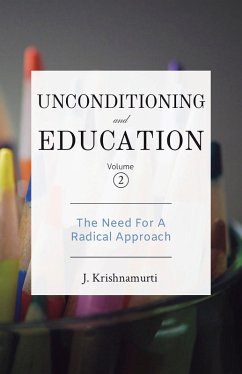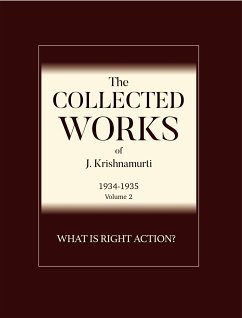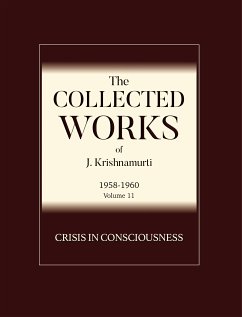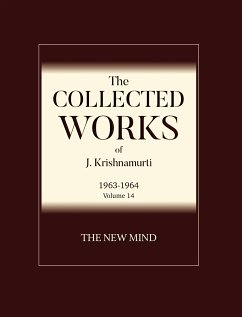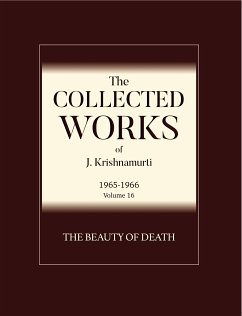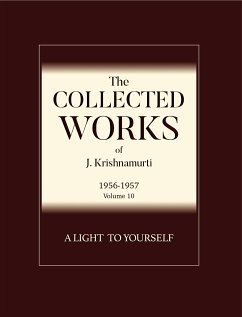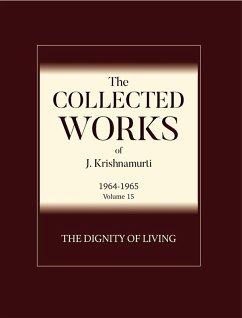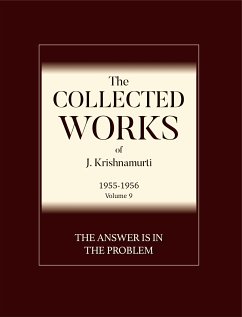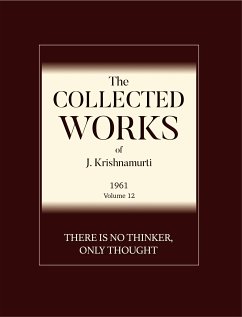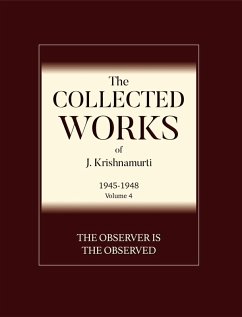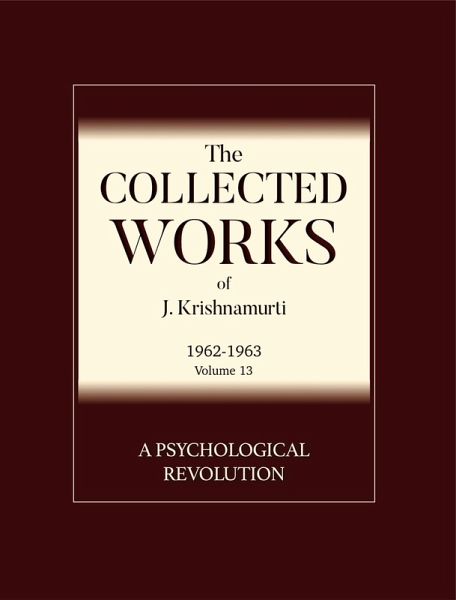
A Psychological Revolution (eBook, ePUB)
The Collected Works of J Krishnamurti 1962 - 1963

PAYBACK Punkte
0 °P sammeln!
The psychological revolution that Krishnamurti refers to is not only in the conscious mind, but also in the unconscious. He states, 'This is one of our difficulties, perhaps our major difficulty: to be free of the whole content of the unconscious.' This hidden part of our consciousness is the result of 'many thousands of years of man's endeavor; we are the sum total of his struggles, his hopes, his despairs, his everlasting search for something beyond, and this piling up of experience is still going on within us. To be aware of that conditioning, and to be free of it, demands a great deal of a...
The psychological revolution that Krishnamurti refers to is not only in the conscious mind, but also in the unconscious. He states, 'This is one of our difficulties, perhaps our major difficulty: to be free of the whole content of the unconscious.' This hidden part of our consciousness is the result of 'many thousands of years of man's endeavor; we are the sum total of his struggles, his hopes, his despairs, his everlasting search for something beyond, and this piling up of experience is still going on within us. To be aware of that conditioning, and to be free of it, demands a great deal of attention.'ObThe psychological revolution that Krishnamurti refers to is not only in the conscious mind, but also in the unconscious. He states, 'This is one of our difficulties, perhaps our major difficulty: to be free of the whole content of the unconscious.' This hidden part of our consciousness is the result of 'many thousands of years of man's endeavor; we are the sum total of his struggles, his hopes, his despairs, his everlasting search for something beyond, and this piling up of experience is still going on within us. To be aware of that conditioning, and to be free of it, demands a great deal of attention.
Dieser Download kann aus rechtlichen Gründen nur mit Rechnungsadresse in A, B, BG, CY, CZ, D, DK, EW, E, FIN, F, GR, H, IRL, I, LT, L, LR, M, NL, PL, P, R, S, SLO, SK ausgeliefert werden.




